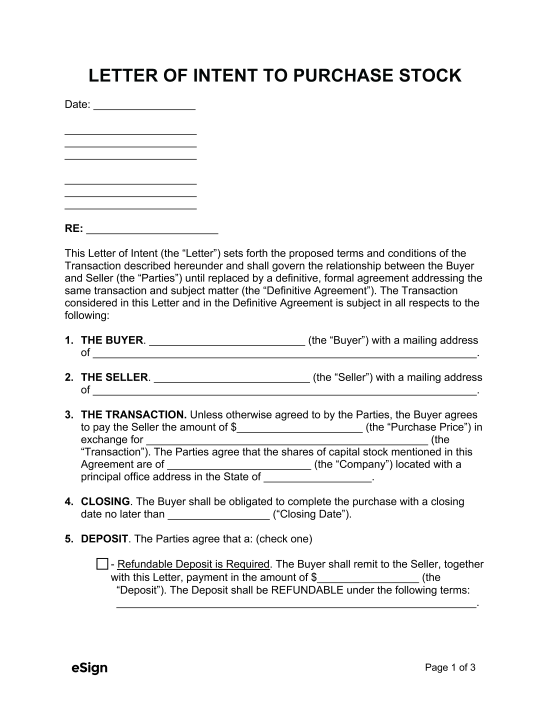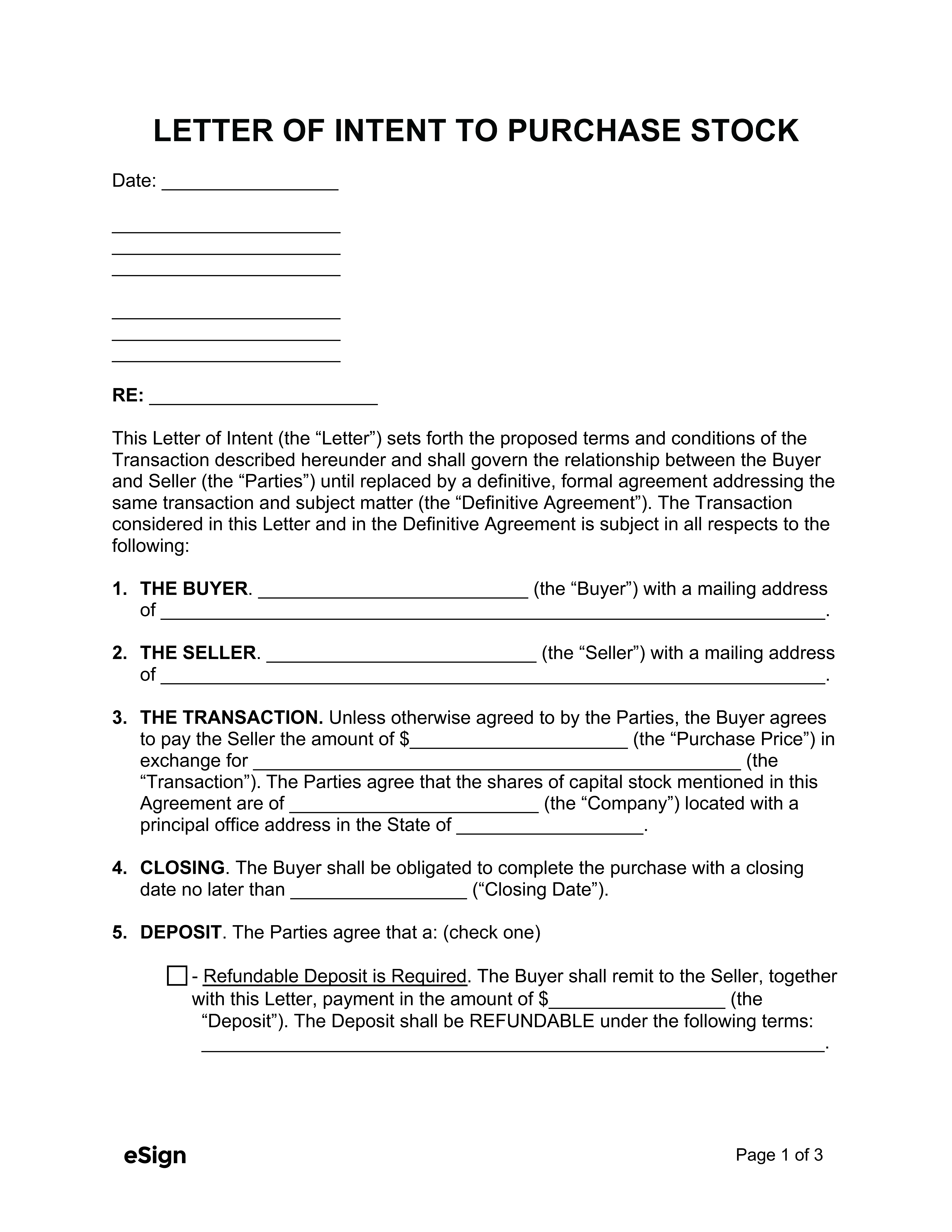What to Include
The following information is typically included in a stock purchase letter of intent:
Buyer and Seller Information – The name and address of the party intending to purchase stock and the company receiving the letter.
Stock Information – The number of shares to be purchased, the proposed purchase price, and the share class.
Confidentiality – A confidentiality provision ensuring that any sensitive information disclosed during the buyer’s due diligence won’t be used against the company.
Exclusivity – The two parties will often agree not to engage in negotiations with other parties during the sale process. If this is the case, it should be stated in the document.
Benefits
Some of the benefits of using a letter of intent to purchase stock include the below:
- It allows the buyer and seller to see if they agree on the overall deal before spending time, money, and resources on due diligence and drafting a formal agreement.
- It ensures both the parties understand each other’s expectations and seriousness.
- The seller may use the letter as evidence to lenders/investors that a sale is pending.
Sample
Download: PDF, Word (.docx), OpenDocument
LETTER OF INTENT TO PURCHASE STOCK
Date: [DATE]
[SENDER (e.g., BUYER) NAME]
[SENDER STREET ADDRESS]
[SENDER CITY, STATE, ZIP]
[RECIPIENT (e.g., BUSINESS OWNER) NAME]
[RECIPIENT STREET ADDRESS]
[RECIPIENT CITY, STATE, ZIP]
RE: Stock Purchase
This Letter of Intent to Purchase Stock (the “Letter”) sets forth the proposed terms and conditions of the Purchase described hereunder and shall govern the relationship between the Buyer and the Seller (the “Parties”) until replaced by a definitive, formal agreement addressing the same purchase and subject matter (the “Definitive Agreement”). The Purchase considered in this Letter and in the Definitive Agreement is subject in all respects to the following:
1. THE BUYER. [BUYER NAME] (the “Buyer”) with a mailing address of [ADDRESS].
2. THE SELLER. [SELLER NAME] (the “Seller”) with a mailing address of [ADDRESS].
3. THE TRANSACTION. Unless otherwise agreed to by the Parties, the Buyer agrees to pay the Seller the amount of $[PURCHASE PRICE] (the “Purchase Price”) in exchange for [NUMBER OF STOCKS AND STOCK CLASS] (the “Transaction”).
4. ACCESS TO INFORMATION. After the execution of this Letter, the Buyer and their advisors shall be granted full access to any and all information about the Transaction.
5. CONFIDENTIALITY. The Seller and Buyer shall maintain the negotiations and pertinent information confidential and limited only to the Parties’ advisors, internal staff, or other necessary third (3rd) parties. Press or public releases are prohibited without prior mutual written authorization from the parties or as required by law.
6. GOOD FAITH NEGOTIATIONS. The Buyer and Seller are expected to negotiate the terms of the Transaction herein in good faith.
7. INTENTION OF THE PARTIES. This Letter sets forth the intentions of the Parties to use reasonable efforts to negotiate, in good faith, a Definitive Agreement with respect to all matters herein. Notwithstanding paragraphs 4 through 6, which shall be legally binding, any legal obligations with respect to all other matters shall only arise if and when the Parties execute and deliver a Definitive Agreement.
8. GOVERNING LAW. This Letter shall be governed under the laws of the State of [STATE NAME].
9. SIGNATURES.
Seller Signature: ___________________ Date: [MM/DD/YYYY]
Print Name: [SELLER NAME]
Buyer Signature: ___________________ Date: [MM/DD/YYYY]
Print Name: [BUYER NAME]

